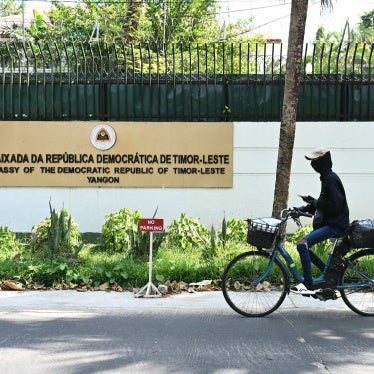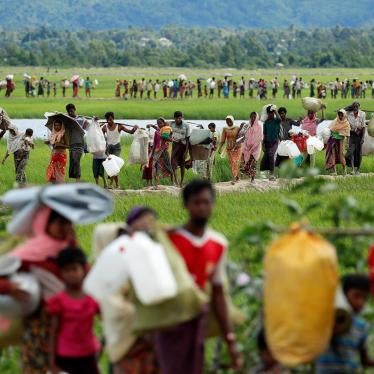North Korea continues to deny the existence of political prison camps despite overwhelming evidence and clear satellite imagery that shows they exist. North Korea has rejected all the recommendations asking the Government to acknowledge the existence of the camps, to close them and to release those arbitrarily detained there. It is estimated that today up to 120,000 people are living in such camps where they are deprived of all basic human rights.
North Korea has also rejected recommendations to abolish its ‘guilt by association’ policy, whereby family members of persons imprisoned for alleged wrong doing are imprisoned with them simply because of their family ties. This practice has sent countless children and elderly persons to political prison camps that operate in a way not unlike the gulags of the 20th century. Thousands of people have perished in these camps. The UN Commission of Inquiry (COI) on North Korea concluded that the crime of extermination has been committed in North Korea, including in the political prison camps.
North Korea has also rejected recommendations to scrap its hereditary and discriminatory class system known as "songbun". A person is born into a particular social class: loyal, wavering or hostile, according to his or her family's history of perceived loyalty to the political system and cannot shed this label. Only those who are born into the loyal class can live in Pyongyang, access higher professions, educational and health services. Persons born into the hostile class are systematically discriminated against and were disproportionately affected by the famine of the 1990's because of politically determined, discriminatory food distribution policies of the state.
We welcome North Korea's acceptance of recommendations that it ensure that humanitarian agencies have free and unimpeded access to reach all populations in need, and in particular to help the most vulnerable, as well as the government’s commitment to ensure those programs are implemented with adequate monitoring and full transparency. We urge humanitarian agencies to immediately request such access and press for the full cooperation of the North Korean authorities, and to publicly inform the Council on their progress. North Korea's commitment in this respect should be quickly tested.
We regret that North Korea has not accepted concrete recommendations aimed at securing freedom of expression, association, freedom of movement and religious freedoms and that it has rejected all the recommendations of the COI. As well as rejecting all recommendations relating to the need to resolve the question of the abduction of foreign nationals.
Although the UPR is an important way to conduct dialogue with the North Korean authorities on matters related to human rights, this mechanism is not suited to respond to mass atrocities and crimes against humanity of the scale and cruelty recorded in North Korea. The UN Security Council must take immediate steps to hold North Korean leaders to account for crimes against humanity by referring the case of North Korea to the International Criminal Court.








